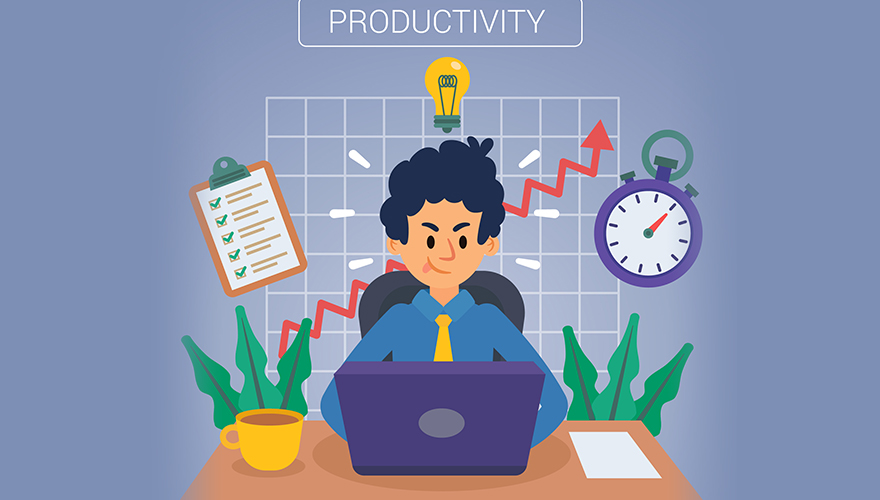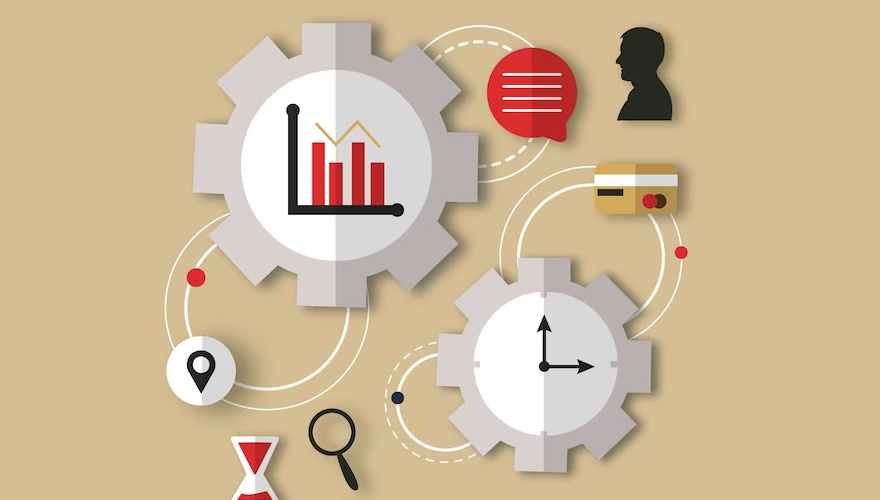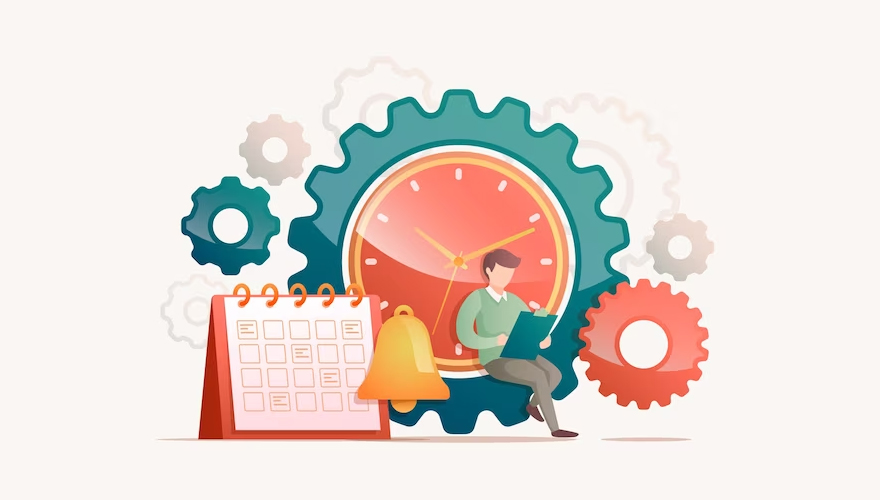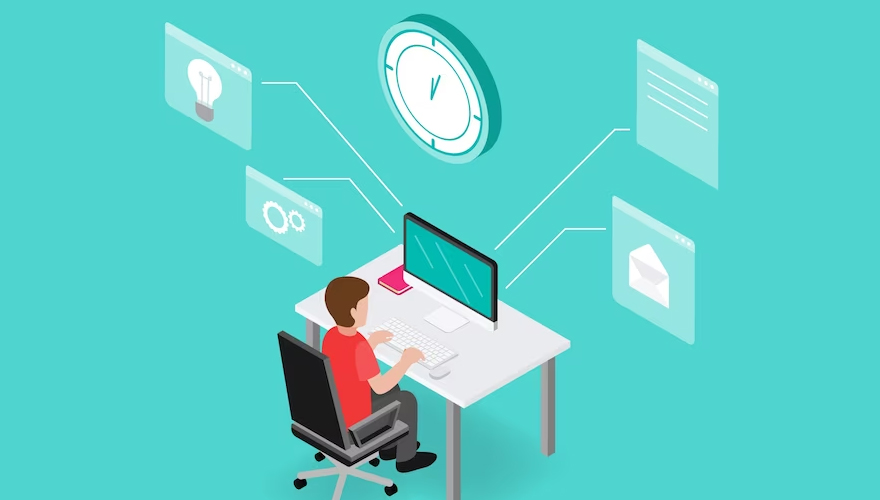The skill of time management is something that can be taught, mastered, practiced, and refined. Learning new behaviours is often necessary to improve time management, as with any skill. It is worth the effort, however, because when you manage your time well, you will be more productive and perform better. Some people struggle with time management, while others are in the top echelon of productivity. It doesn’t matter what you are trying to master, you have to know how to do it. There are plenty of tips, tricks, and techniques on the Internet.
However, what does time management mean? In a nutshell, it’s a way to divide your time evenly among many tasks and activities so that your goals can be achieved efficiently and effectively. This process involves planning, prioritizing, organizing work, promoting focus, and effectively managing time. You’ll learn the eleven best time management techniques that will help you organize your tasks, stay focused on what matters most and stay on top of your progress in this article. Take advantage of these tips and tools to achieve more in less time and boost your productivity.

Don't List
Is your to-do list never-ending? Make a short but helpful list of things not to do. Simply identify several activities, tasks, or habits you could resign yourself to once and for all, rather than writing down everything you need to do, crossing them off, and continuously adding to your list.
You are supposed to focus on things that waste time inefficiently: playing online games while you are at work, working on weekends and neglecting family needs, checking your email every fifteen minutes, etc. When you focus on the things that eat up time you could spend more productively, you have a better chance of modifying your behavior, improving your work-life balance, and showing more progress at work.

Blocking of time
Time blocking entails dividing your working hours for the day into multiple blocks of uninterrupted focus and allocating each block to either a single task or a series of related tasks: Plan your work for the day. Identify your priorities and estimate how much time each task will take.Put together a schedule: allocate time for each piece of work and start the day by placing those allocated to priority tasks first.
By designing a schedule around this principle, you promote single-tasking and reduce “open-ended reactivity” that makes us distracted and kills our focus. Thus, time blocking produces immense benefits, such as improved work organization, improved efficiency, and an increase in productivity.

Rule of ten minutes
In reality, most of us don’t always feel motivated, especially when we have to deal with something challenging and boring. Consequently, we postpone several useful and goal-oriented activities, and in many instances, they do not get accomplished. There is, however, a procrastination cure, which is called the 10-minute rule.
Talk yourself into devoting merely 10 minutes to working on a demanding job when you feel dread or any other unpleasant emotions related to it. That’s a small amount of time. You can accomplish almost anything in 10 minutes. In this way, the 10-minute rule can help you combat sluggishness, laziness, and loathing towards some tasks. Even if you start working for just 10 minutes, you have a better chance of continuing for longer and completing that dreadful chore faster.

Maintain a regular schedule
Work calendars are typically used to schedule meetings and events. On the other hand, you can also use it to schedule time to work on tasks. This not only reminds you to do the work in a specific time frame but also lets others know when you’d prefer not to be interrupted, reducing distractions.
Scheduling tasks also allows you to turn off your phone and close your email application since your time is blocked. When scheduling your tasks around your most productive times, you’ll be able to get the most out of this habit. Every day, look at your schedule before getting started on any task you’re asked about.

Make large tasks smaller by dividing them into smaller steps
The most experienced professional may feel overwhelmed by a to-do list that consists of large, multi-step tasks or entire projects. As you check items off your list, you feel like you are steadily moving forward, which makes large tasks more manageable.
Take a few minutes to break down the task you always skip because you feel it’s too big into smaller chunks you can accomplish effectively. The other extreme is not to overextend yourself by putting off small tasks until the last minute. If it will only take 15 minutes to do something, complete it in that timeframe.

Taking breaks is important
Make sure you schedule breaks. Make these time-outs a part of your calendar so you remember to do them during the day. Whether it’s a scheduled break or not, it’s important to recognize when you need one. If you take a short break-even just 10 minutes you will feel refreshed and more focused when you return to your work.
Employees sometimes find it difficult to take breaks, especially in an environment that values busyness. Becoming busy is not the same as becoming productive. It is possible to increase productivity by taking frequent short breaks during the workday.

Be prepared for your day by planning ahead
All-time management techniques begin with planning, the most effective and proven method. Planning is essential for organizing your time effectively.
Furthermore, it provides a detailed overview of all the things you need to do. Plan your daily, weekly, or monthly tasks, and the rest will fall into place.
Organizing and planning your work can be done in many ways:
- Personal organizers and calendars with fancy designs
- Tools and apps for managing time
- Checklists
- Paper time management tools, such as Post-it notes, notepads, and bullet journals
Mixing and combining are possible. Choose various options to meet your time management needs.

Limit the amount of e-mail you respond
Responding to and checking e-mails can be time-consuming. According to statistics, workers spend 30 hours a week checking their email. Imagine all the things they could accomplish during that time. You should keep your 30 hours for work by spending as little time as possible on e-mail.
Respond to only those that are most important and require a prompt response if you check it in the morning. You can go through the rest after work or in breaks. To prevent your inbox from being flooded, mark those unimportant emails as spam.

Work in your zone of productivity
Some people prefer to rise early, whereas others prefer to sleep late. Each of us works at various times during the day and in different parts of the night. You may find that your most productive time is in the morning. You can also work late at night if you prefer the darkness. Just because it is said that you achieve productivity during certain hours does not mean you should change your habits. Your time management strategy may not be the same as someone else’s. Absolutely. Be sure not to overlook the deep work phase – the part of your workday when you concentrate solely on tasks.

Right sleep routine
Sleep is misunderstood as counterproductive to productivity. Why not spend that time doing something else instead of sleeping? Our productivity suffers when we’re sleep-deprived. For our bodies and minds to function optimally, we require 7 to 8 hours of quality sleep. Sleep hygiene plays a key role here.
Sleep hygiene consists of observing very similar routines every night and every morning, to teach our bodies how to fall asleep more quickly, sleep more deeply, and wake up feeling refreshed. The sleep schedule is based on the same time at night and the same time in the morning. You should also enforce a “digital shut down” before bed, and find an activity that will help you relax at night.

Become emotionally intelligent.
A person with emotional intelligence can identify and manage both their own emotions as well as the emotions of others. EI can be used in problem-solving as well as to calm yourself down when you are stressed out. Those with a high EI are not perfectionists, they know how to balance their work and personal lives, and they stay focused.
In addition, they are self-motivated, know their strengths and weaknesses, and know how to set boundaries. By having a high EI, you can achieve goals and achieve tasks more efficiently.
Conclusion
Your level of productivity is largely determined by how efficiently you use your time. It means that without effective time management, it is impossible to become efficient and to get things done on time. Working with time can be challenging. Therefore, you must know how to manage your work and daily activities. We all have different methods of time management, and as long as they are effective, there is nothing wrong with that. The key is to ask yourself if you are becoming more productive. If not, you can use the five tips above or develop your ways of managing your time so that you can dedicate more time to your work.

